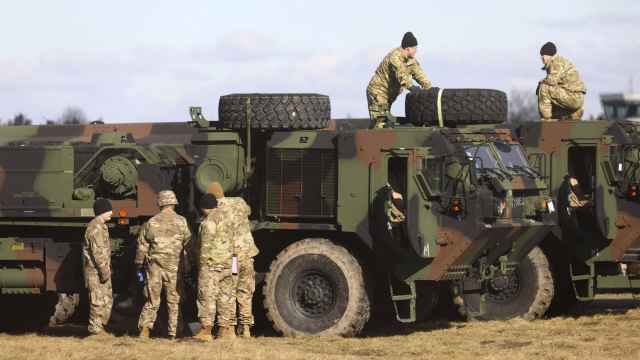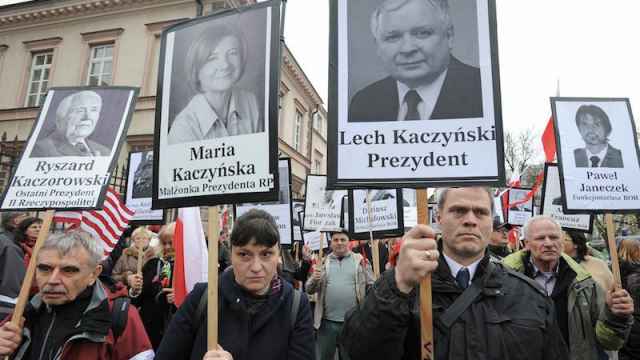A U.S. agreement with Poland to send 1,000 extra troops to the country is a defensive measure needed for its security, the U.S. ambassador to Warsaw said on Monday, replying to accusations from neighboring Russia that the move is aggressive.
U.S. President Donald Trump's pledge last week to dispatch the troops to Poland was a step sought by President Andrzej Duda because of past Russian aggression against Poland and to help solidify his country's ties to the West.
Russian Deputy Foreign Minister Sergei Ryabkov was quoted as saying by the Russian state-run RIA news agency last week that Washington's move probably reflected "aggressive" intentions.
Another lawmaker, ex-commander of Russia's special forces Vladimir Shamanov, said he was concerned that the U.S. drones could be capable of carrying nuclear weapons at some point.
In response, U.S. Ambassador Georgette Mosbacher said that "what we're talking about is merely defensive, (making) a country enabled to defend its borders."
"And history is proving, particularly here in Poland, that (a country) has to be very careful with regard to its neighbors and be able to defend itself," she told Reuters in an interview while visiting a military base in western Poland where U.S. F-16 jet fighters are stationed.
Russia was Poland's overlord for almost half a century until the collapse of Communism across eastern Europe in 1989-90.
But Polish jitters about Russia rose anew in 2014 when Russia back a pro-Moscow separatist revolt in eastern Ukraine, and annexed the Crimea region from that country, another eastern neighbor of Poland.
In response to Moscow's increased geopolitical assertiveness, the United States sent troops to Poland as part of a 2016 agreement with the NATO military alliance. About 4,500 U.S. soldiers are deployed on a rotational basis.
"... We're talking about the eastern flank of NATO and our responsibilities as important war allies - Poland and the United States. We want to take the necessary actions to be defensive," Mosbacher said. At a meeting between Duda and Trump last week in Washington, Warsaw also signed a memorandum on cooperation with the Americans with regard to building Poland's first nuclear power plant, expected to cost 100 billion zlotys ($26.33 billion).
Mosbacher said she "wouldn't be surprised" if the United States provided some financing for construction of the plant, which is expected to start operating in 2033 with a capacity of 1.0-1.5 gigawatts (GW).
A Message from The Moscow Times:
Dear readers,
We are facing unprecedented challenges. Russia's Prosecutor General's Office has designated The Moscow Times as an "undesirable" organization, criminalizing our work and putting our staff at risk of prosecution. This follows our earlier unjust labeling as a "foreign agent."
These actions are direct attempts to silence independent journalism in Russia. The authorities claim our work "discredits the decisions of the Russian leadership." We see things differently: we strive to provide accurate, unbiased reporting on Russia.
We, the journalists of The Moscow Times, refuse to be silenced. But to continue our work, we need your help.
Your support, no matter how small, makes a world of difference. If you can, please support us monthly starting from just $2. It's quick to set up, and every contribution makes a significant impact.
By supporting The Moscow Times, you're defending open, independent journalism in the face of repression. Thank you for standing with us.
Remind me later.






